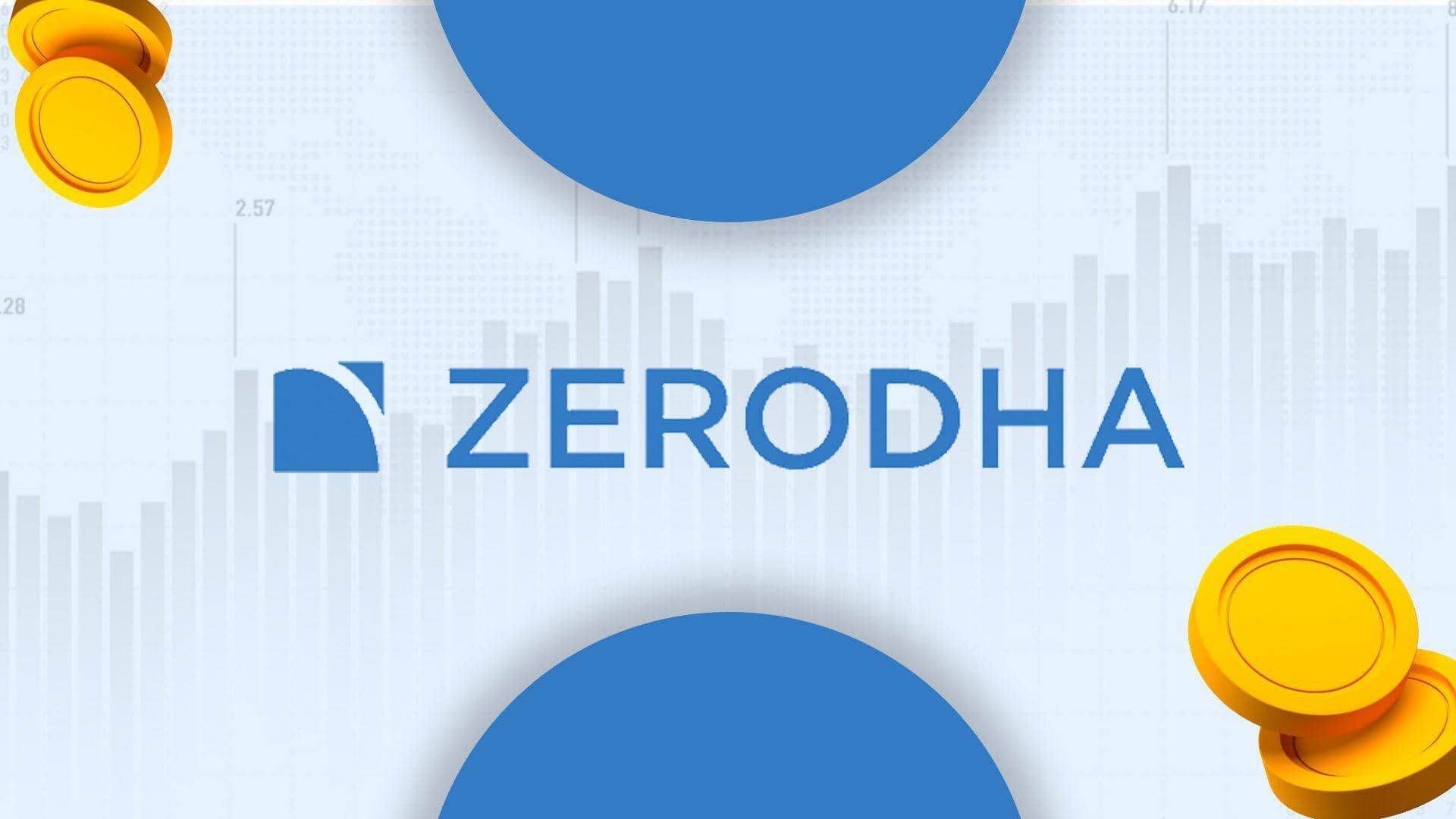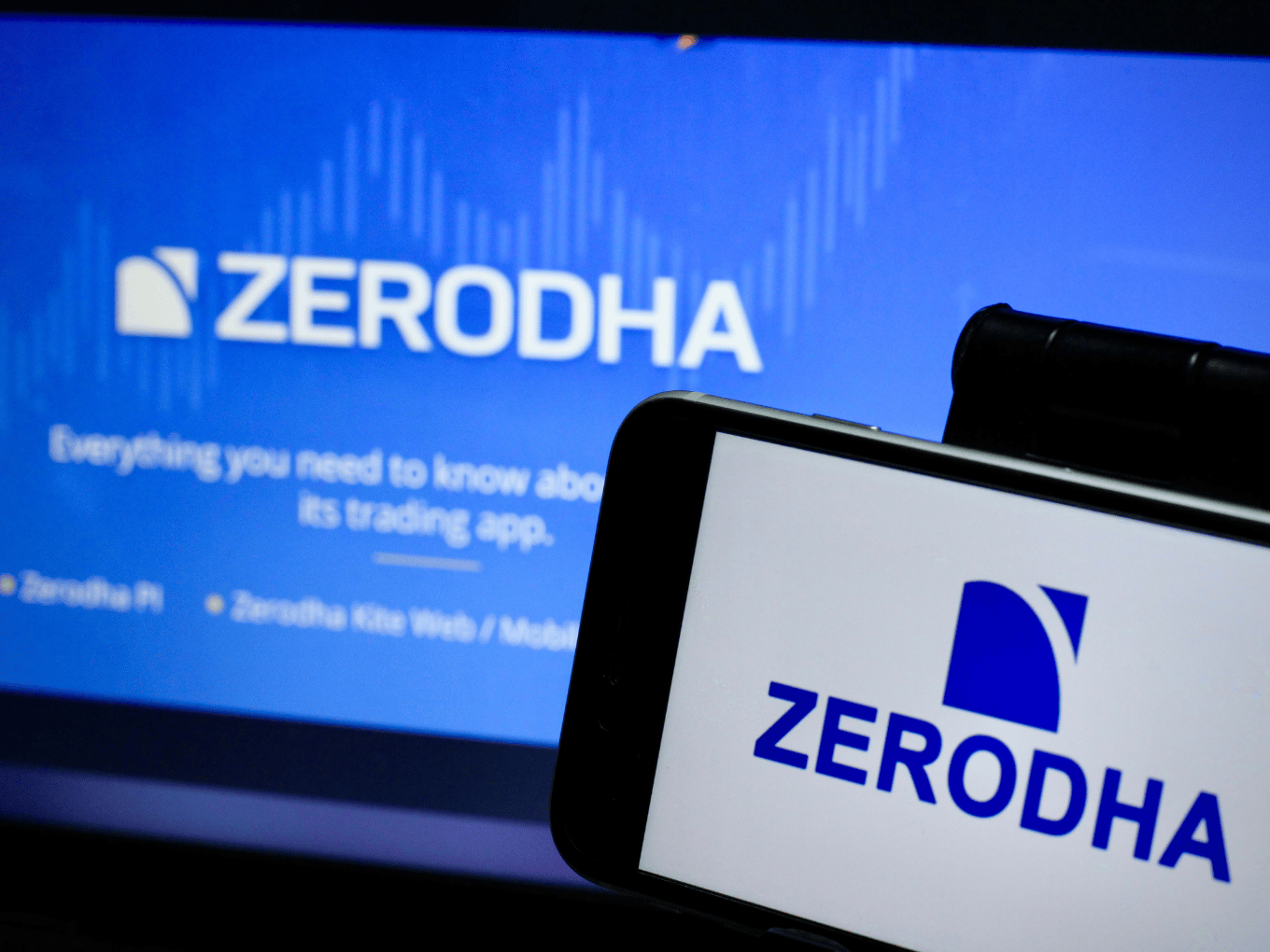India’s largest stockbroking platform, Zerodha, could soon change its long-standing zero brokerage model. In a recent blog post marking 15 years of the company, founder and CEO Nithin Kamath revealed that recent market and regulatory shifts have significantly hurt the firm’s revenue, forcing it to consider charging brokerage fees on delivery trades for the first time in years.

A 40 Percent Hit to Brokerage Revenue
Kamath disclosed that Zerodha’s brokerage income dropped by around 40 percent in the June quarter of FY26 compared to the same period last year. The decline, he explained, was largely driven by a slowdown in options trading following new regulatory measures. With the market regulator reportedly evaluating whether to completely stop weekly options, Kamath warned that the business could face further strain.
“If weekly options trading were to be discontinued, we would have no choice but to start charging brokerage on equity delivery trades to keep the business viable,” Kamath said. “Most of our competitors already charge for delivery, but we have avoided it for as long as possible thanks to our scale and loyal user base.”
Market Headwinds Beyond Zerodha’s Control
The Zerodha chief admitted that much of the situation is not in the company’s hands. Brokerage revenues, he said, depend heavily on market conditions, investor participation, and regulatory decisions. “Our earnings are largely a function of how markets perform, how active traders are, and what rules the regulator sets. This is not something we can fully control,” Kamath wrote.
He pointed out that the real challenge lies in the regulatory risk that has now materialised. The increase in the Securities Transaction Tax (STT) on options, the reduction in weekly expiries to just two per month, and the removal of certain exchange transaction rebates have all impacted Zerodha’s bottom line.

Regulatory Impact and Rising Costs
According to Kamath, the changes introduced by regulators have had a domino effect on the entire broking industry. The government’s decision to raise the limit on Basic Services Demat Accounts (BSDA) and reduce rebates has affected the economics of running discount brokerage platforms.
He noted that Zerodha had been anticipating this slowdown since late 2024. “We began feeling the impact of these changes from October 2024 onwards, but the full effect became visible only in FY26. The June quarter numbers clearly show the hit,” Kamath said.
The company, which built its success on transparent pricing and zero-brokerage equity delivery, has prided itself on profitability without external funding. However, with falling revenues and regulatory tightening, even Zerodha may now be forced to evolve its model to stay sustainable.
A Possible Shift in Zerodha’s Model
Zerodha’s rise to dominance in India’s retail investing scene came from its revolutionary pricing strategy, offering free equity delivery and low-cost intraday trading. The platform currently serves millions of active investors and traders across India. However, the current slowdown in derivatives and options trading — which forms a large part of Zerodha’s revenue — has shaken that foundation.
Kamath’s statement signals a possible shift in approach, suggesting that while Zerodha will continue to prioritise affordability and transparency, it may no longer be able to offer completely free services. The firm’s move, if implemented, could mark a significant change in India’s retail investing landscape.

The Road Ahead for Zerodha
Despite the challenges, Kamath remains confident about the company’s resilience and long-term prospects. “We have always built Zerodha for the long run. Our goal has never been about chasing quick profits or valuations, but to remain sustainable and serve our customers well,” he wrote.
He also hinted that Zerodha would continue to innovate around its core strengths — technology, transparency, and customer trust — to navigate regulatory shifts. While charging brokerage on delivery trades would represent a major shift, Kamath emphasised that such a step would only come as a last resort to preserve the company’s financial stability.
The message is clear: the era of zero-brokerage equity delivery may be nearing its end if current trends persist.
For more insights on India’s markets, fintech shifts, and financial updates, follow You Finance on Instagram and Facebook.














